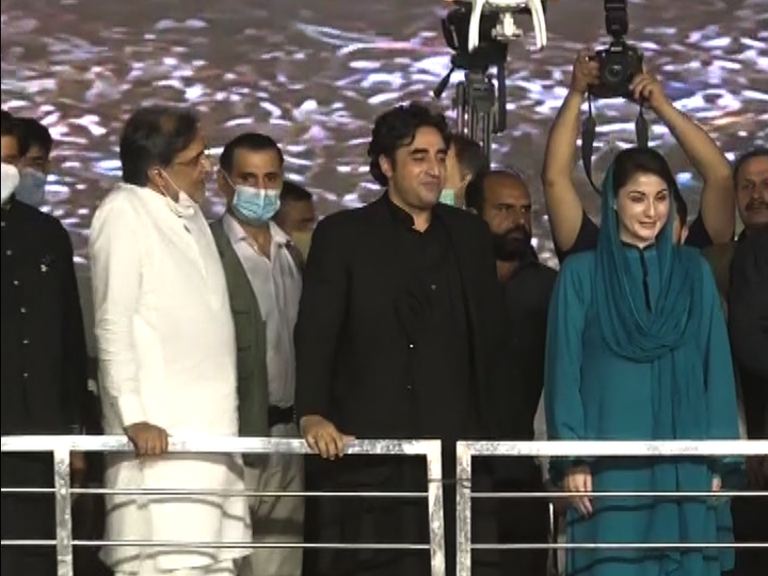
Bringing together 11 diverse political parties, from all over the country, holding 3 massive rallies in Gujranwala, Karachi, and Quetta, has been no mean achievement for Pakistan’s opposition parties. However, in recent weeks questions are being raised about the next plans of the opposition parties.
In two different pieces in Dawn, the questions raised were whether the Pakistan Democratic Movement (PDM) is sending mixed signals or mixed messages?
According to an Editorial in Dawn, “is the direction shifting, or does the main target remain a security establishment that is loath to distance itself from warring politicians? In the most significant press interview of her political career so far, Ms Maryam Nawaz ruled out dialogue with Prime Minister Imran Khan.” Further Nawaz Sharif, “asserted that he did not want answers from Mr Khan but from those who pulled the strings. Ms Nawaz spoke as well, gunning for the prime minister as she did in her interview to the BBC, as well as the interior minister for his recent controversial remarks about the ANP. Is it part of a plan then? For the father to focus on the establishment and the daughter on the present dispensation and governance under Mr Sharif as compared to that under the current rulers? Is the departure of Prime Minister Khan Ms Nawaz’s priority, and the targeting of the establishment Mr Sharif’s? Or do these two goals come together seamlessly as the PML-N’s narrative? Only time will tell.”
According to former Editor of Dawn, Abbas Nasir, “if it is mixed signalling from the PDM leadership as part of a deliberate deception strategy it would be one thing, but altogether another if it is mixed messaging and reflects disagreements among the alliance leadership over fundamental issues. Since the start of the Gilgit-Baltistan election campaign, in which first PPP leader Bilawal Bhutto-Zardari and then PML-N leader Maryam Nawaz Sharif plunged with considerable vigour, a number of interviews and statements have emerged that seem to not be coming from the ‘same page’.”
As Nasir noted, “Perhaps this new reality is having an impact on those tasked with gathering on-the-ground information because they are exposed to it. One manifestation was that a key establishment figure recently acknowledged the need for a broad-based national dialogue. Mr Sharif has been chipping away at the establishment resolve and who knows what dividend, if any, his persistence will deliver over the medium to long term. In the short term, it is causing considerable anxiety among government ministers, as evident in their daily statements.”
As the former editor of Dawn pointed out “The faltering economy, galloping inflation and shortages of food items, gas and other essentials may also be weighing on the minds of the government backers. The international environment is also challenging, with a new US president to enter office and the continued aggressive, intransigent tone of the Modi government. Even then, while all sides may have spoken about a need for a national dialogue, there are few specifics about how the paradigm can be reset to reflect any changed realities and the extent to which stakeholders would agree with such a scenario.”
Finally, “At least the politicians are clear on what they mean to achieve or get out of a dialogue such as the one they are proposing: free and fair elections and then respect for the principle of civilian supremacy, the bedrock of any constitutional democracy. This is a globally acknowledged principle, but in our case it has repeatedly been evidenced how much contempt it evokes in some institutions. So the question is: if a dialogue were ever to happen, would, Nawaz Sharif, for example, be willing to concede anything to the establishment?”
![]()





